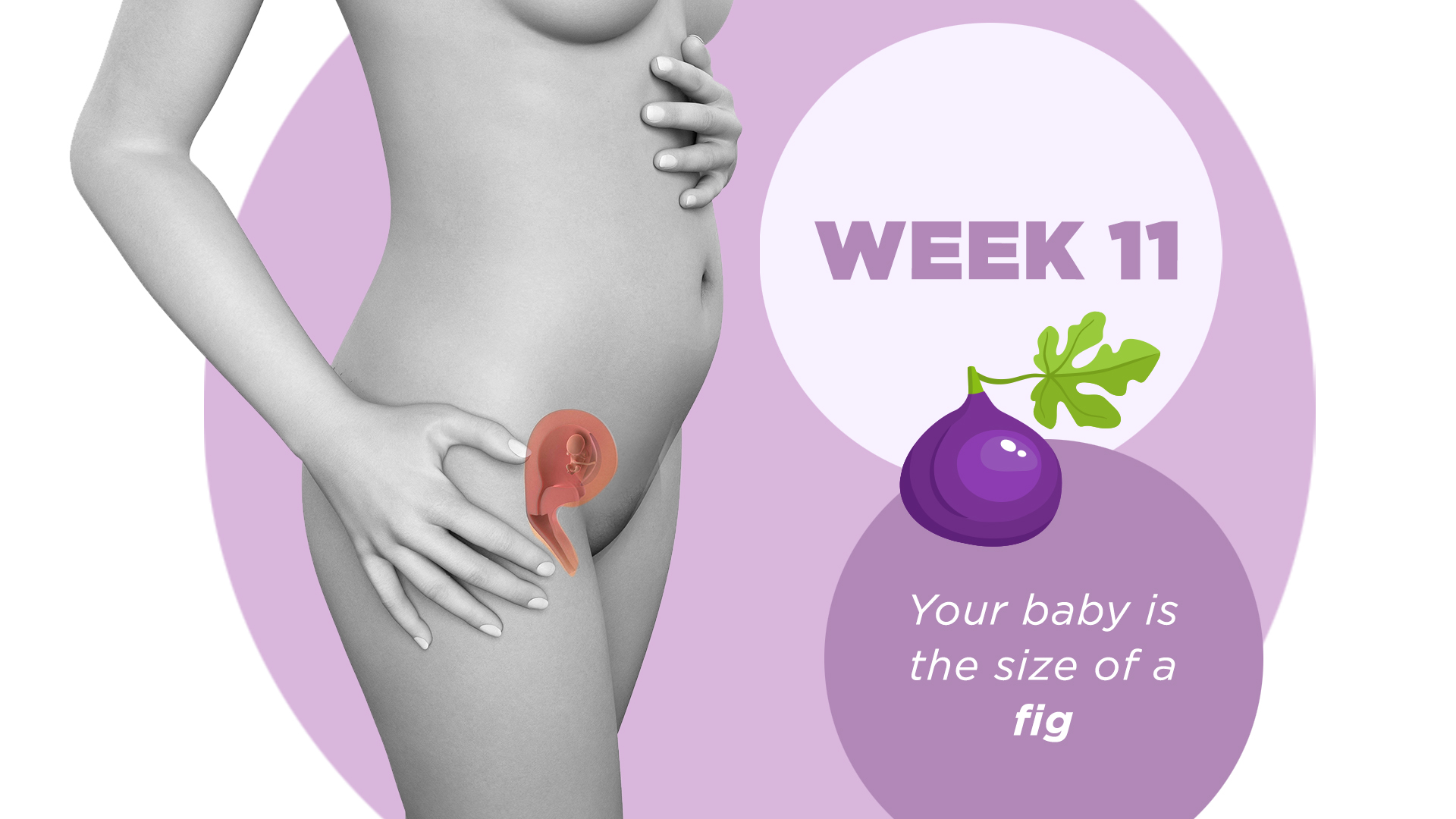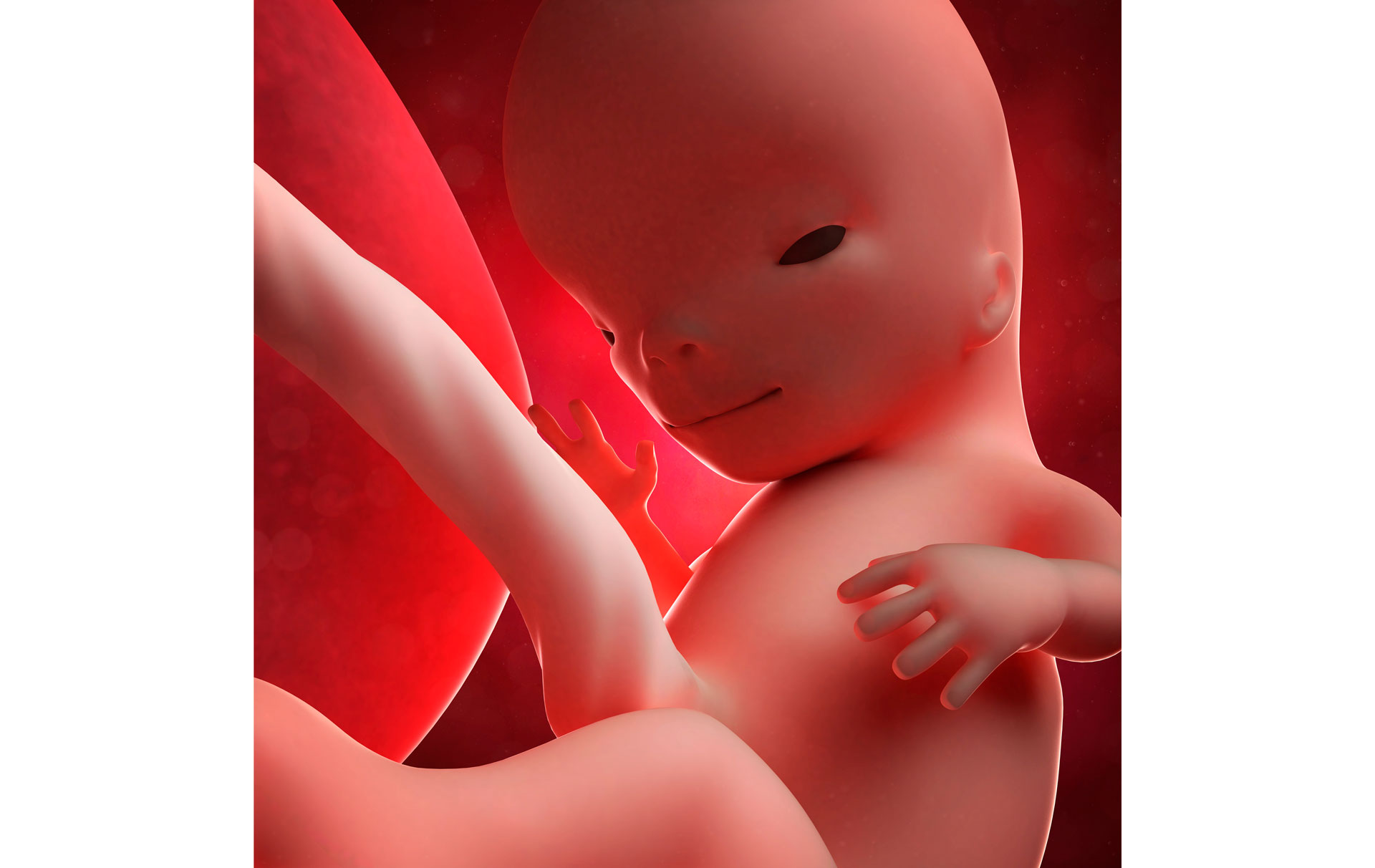11 weeks pregnant - symptoms, fetal development and what to consider
Welcome to your second trimester...

At 11 weeks pregnant you're just beginning to move into your second trimester, where everything (hopefully!) should begin to get a bit more comfortable. Here's an overview of what you need to know about being 11 weeks pregnant...
Symptoms at 11 weeks pregnant
If you've been suffering with morning sickness and have been off your food for weeks then your weight may have dropped down a bit. Now is the time when your appetite and energy levels may start to make a welcome return and you may even find that you start gaining a few pounds. Your breasts probably look bigger and feel heavier, veins may be visible and your nipples will become larger and darker. You may also notice raised bumps on your nipples. These are called Montgomery's tubercles and are one of the many outwards signs of pregnancy that will disappear after your baby is born.
If you're used to sleeping on your stomach then sore boobs can come between you and a good night's sleep. If this is your preferred position then try training yourself to sleep on your left side. It'll help improve the flow of blood and nutrients to your baby as well as helping your kidneys get rid of waste and fluids. The sooner you get used to this position, the better you'll be able to sleep once your belly starts getting really big.
Fetal development at 11 weeks pregnant
Your baby is now about 2 inches long, around the size of a tomato. The bones of the face are fully formed. Ear buds look more like ears and fingers and toes are separating. There are even finger nails! Although your baby's head remains disproportionately large, their body is starting to straighten out and is now going through its own growth spurt. The umbilical cord is fully formed and the placenta is rapidly developing but won't be fully formed for another week.
From this week onwards your little one's heartbeat may become loud enough for your doctor or midwife to be able to monitor it with a special listening device called a Doppler.

Things to consider at 11 weeks pregnant
You may have your booking-in appointment this week and some women have a nuchal scan now, too. A nuchal scan is an ultrasound scan which is used to screen for Down's Syndrome.
All women in England should be offered a nuchal scan between 11 weeks, 2 days and 14 weeks, 1 day of pregnancy. Together with a blood test it is used to calculate your individual risk of having a baby with Down's Syndrome. The blood test and nuchal scan together are known as The Combined Test.
Parenting advice, hot topics, best buys and family finance tips delivered straight to your inbox.
Nuchal means ‘neck' and at this ultrasound appointment your sonographer will measure the thickness of a pocket of fluid on the back of your baby's neck known as the nuchal fold. All babies have this fluid, but the amount may be more in babies with Down's Syndrome.
The blood test measures two proteins in your blood. These are hormones called PAPP-A (pregnancy associated plasma protein-A) and free B-hCG (B-human chorionic gonadotrophin).
The risk of your baby having Down's Syndrome is then calculated using software that takes into account your age, weight and family origin, along with gestation of the pregnancy. This type of screening test cannot give definite answers which is why your results are expressed as a ‘risk' of having a baby with Down's rather than a definite diagnosis.
If your risk is found to be one in 150 or less then you will be offered one of two diagnostic tests, a Chorionic Villus Sampling or an amniocentesis. Unlike screening tests which assess risk, diagnostic tests will give you a definite answer as to whether or not your baby has Down's Syndrome.
There are all sorts of concerns that come with antenatal screening and testing for foetal abnormalities and these can be testing times for many expectant parents. For help, advice and support, contact the charity Antenatal Results and Choices (ARC). Their helpline number is 0845 077 2290.
Mums-to-be get bombarded with dos and don'ts of pregnancy, particularly when it comes to healthy eating. But there's one new piece of advice that's bound to put a smile on your face and, so it would seem, your baby's. According to one study, pregnant women with a daily chocolate habit have babies who show less fear and smile and laugh more often at six months of age.
Get excited for what next week holds as at 12 weeks you will get the chance to try out the nub theory. Your 12 week scan will show you a clearer image of your little one from which you can guess the sex by interpreting the shape of their body.
Further advice and information:
- Visit the NHS for more pregnancy week by week advice
- Download a pregnancy tracker app
- View all our pregnancy week by week guides
Anna Bailey has been the editor of GoodtoKnow since 2018. Before joining the team she was Features Editor at MSN UK, where she oversaw Family Health and Days Out. Previously, she was Digital Lifestyle Editor for the broadcaster UKTV, and Lifestyle Editor for ITV.com. Anna studied Multi-Media Journalism at Bournemouth University and went on to gain her NCTJ and NCE journalism qualifications. Anna is responsible for driving the direction and editorial strategy of Goodto. A mum and experienced baby product tester, she is passionate about providing safe, trustworthy, and relatable advice for families of all kinds.